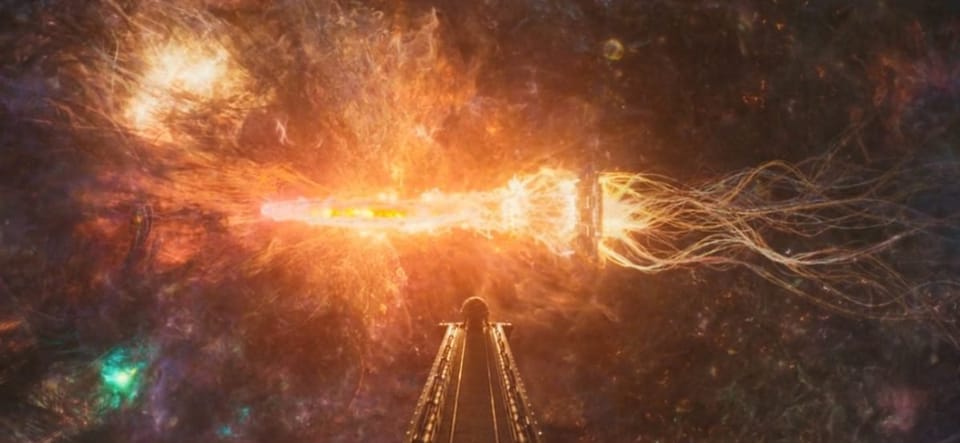Multiverse madness

Season 2 of Disney + and Marvel Studios' Loki wrapped up earlier this month with the show's titular villain-turned-hero fulfilling his destiny and ascending to the throne at the center of the multiverse. By destroying the "Temporal Loom," the magical reactor that weaves together the endlessly branching timelines of Marvel's multiverse, Loki chooses to risk the timeline wars prophesied by He Who Remains, the scientist who built the Loom as a failsafe to prevent his doppelgangers from showing up and destroying all of reality. Instead of averting a nuclear reactor-style Loom meltdown, Loki accelerates it, then gathers the fraying strands of existence and pulls them back together, finally wielding the Norse god powers viewers might have forgotten he possessed for most of the show.
If that feels like a lot to take in from a production company that used to focus on superpowered humans donning expensive costumes to fight crime, well, yes it is. But in recent years, Marvel Studios has become increasingly preoccupied with bigger, more existential matters, such as the fate of all existence. Recent movies and TV shows, from WandaVision to Doctor Strange in the Multiverse of Madness to Loki, have revealed a rich world of branching timelines and alternate realities desperately in need of heroes who can bring order to the cosmic chaos.
Marvel isn't alone: Today, many popular science fiction and fantasy shows incorporate some concept of a multiverse. These include Netflix's The Witcher, which is based on a book series set in a world filled with monsters that arrived on the scene when a bunch of universes experienced a calamitous collision, HBO's His Dark Materials, also based on a book series featuring parallel universes, and Star Trek, which features a recurring "mirror universe" from which evil versions of the show's characters occasionally stumble into our reality. In short, the multiverse is everywhere, and while that can make for some dizzying plotlines, modern audiences don't appear too put off by the many basic questions and logical conundrums raised by characters traveling from one universe to another or swapping places with their clones from a different dimension.
It would take an entire book to address all those issues, but there's one fundamental question I wanted to revisit today: Do scientists think we really could be living in a multiverse?
I posed that question to University of California, San Diego cosmologist Brian Keating back in late 2021, right as Netflix was dropping Season 2 of The Witcher. Keating emphasized that while the notion that we're living in a multiverse is wildly controversial among physicists, two relatively mainstream theories—the theory that our universe expanded rapidly after the Big Bang, better known as inflation, and string theory—both imply the possible existence of one. Some scientists argue that the multiverse is a logical extension of the Copernican principle, which essentially states that there's nothing special or unique about our place in the universe. Perhaps, there's nothing special or unique about our universe, either.
Yet, since it's currently not clear whether there's any way to find concrete evidence that would prove or disprove the existence of a multiverse, others argue that these debates are more philosophy than science. Keating elaborated:
Physicists aren’t in agreement that the multiverse is a serious scientific paradigm worthy of discussion. A lot of people believe it’s not. On the other hand, if you do take it seriously, then you can ask questions about it. But then it’s not clear whether or not there’s any evidence, or set of evidence, that could prove it wrong. Because you could say, well, we thought this was evidence for the multiverse. But actually, in the multiverse, since anything is possible to happen, you can get any range of predictions that you want. And so it’s kind of unsatisfying. It’s like eating cosmic Wonder Bread.
Perhaps, one day, we will have a way to determine whether our version of reality is or isn't part of a grand multiversal tapestry. But until then, I'd wager science fiction writers, unbounded by hard evidence, will keep serving up the cosmic Wonder Bread. And hungry audiences will continue to devour it.
Read my full interview with Keating here.